Your cart is currently empty!
Ready to ditch the crowded hotels and stuffy flights for an adventure that combines the freedom of the open road with the tranquility of nature? Car camping might just be your perfect escape, and these car camping essentials will help you make the most of your adventures.
Imagine waking up to the sounds of birds chirping, with a breathtaking view right outside your car door, and the aroma of freshly brewed coffee filling the crisp morning air. It’s an accessible and exciting way to explore the great outdoors, offering a unique blend of convenience and immersion in nature.
What’s the Deal with Car Camping Anyway?
At its core, car camping is exactly what it sounds like: camping where your car is your primary mode of transportation and often plays a central role in your setup.
While some purists might insist that true car camping involves sleeping directly in your vehicle, the term generally encompasses any camping trip where you have easy access to your car at your campsite. This accessibility is a game-changer, allowing you to bring more gear and creature comforts than you might on a backpacking trip.
One of the biggest draws of car camping is its sheer convenience. Forget about meticulously weighing every item in your backpack; with car camping, you can load up your vehicle with all the car camping essentials you need for a comfortable stay in nature. This ease of transport translates to more flexibility in your itinerary.

You can decide to stay longer at a particularly scenic spot or move on to explore a new area with relative ease. Moreover, car camping often proves to be a more budget-friendly option compared to traditional vacations involving flights and hotels. It allows you to experience incredible destinations without breaking the bank.
For those who might feel a bit apprehensive about sleeping in a tent in the wilderness, car camping can also offer a greater sense of security, especially if you choose to sleep inside your vehicle.
Choosing Your Chariot: Picking the Right Vehicle
Your vehicle tops the list of car camping essentials. The ideal car will depend on your specific needs and preferences, particularly whether you plan to sleep inside it or use it primarily for transporting gear.
Factors like cargo space and the vehicle’s weight capacity are crucial to consider. If sleeping in your car is the goal, a vehicle with seats that fold relatively flat is a major plus. Many SUVs are well-suited for this purpose, offering ample cargo space and the option to create a comfortable sleeping platform by folding down the rear seats. Even trucks can be excellent car camping vehicles, providing a bed in the back or the capacity to carry a truck bed tent.
However, don’t feel discouraged if you drive a smaller car. With some clever planning and efficient packing, even compact cars can work for car camping. Utilizing roof racks can significantly expand your storage capacity, allowing you to carry car camping essentials such as tents, sleeping bags, and other bulky items on top of your vehicle.
Regardless of the size, it’s essential to ensure your vehicle is in good working order and reliable for the journey. Some popular choices among car campers include the Subaru Forester, known for its versatility and cargo space.
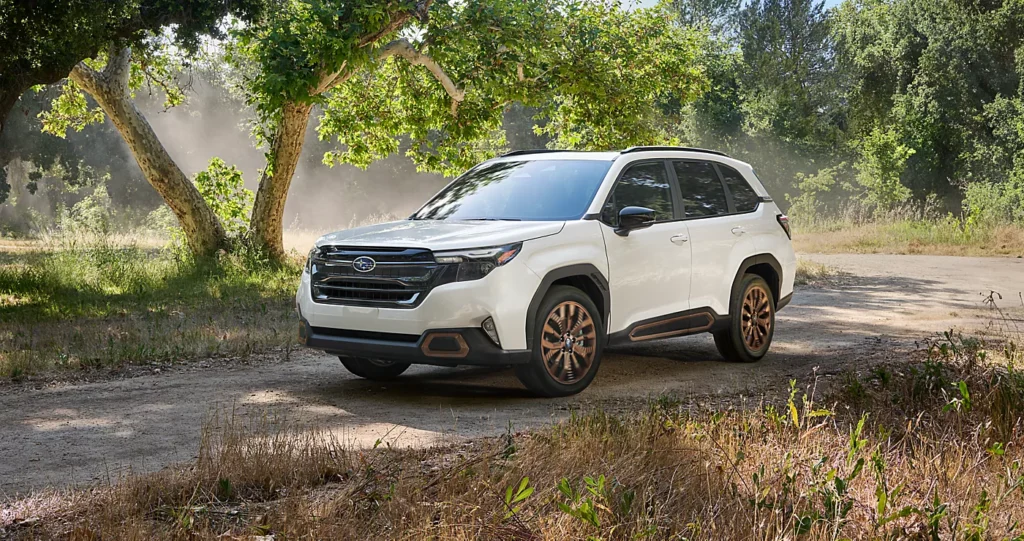
Ultimately, the best car for car camping is the one that meets your needs for space, accessibility, and reliability on your chosen adventure.
Home on Wheels: Setting Up Your Sleep Space
A restful night’s sleep is essential for enjoying your car camping experience to the fullest. The right sleeping gear can make all the difference between waking up refreshed and feeling like you’ve slept on a bed of rocks.
Sleeping Bags
Choosing the right sleeping bag involves considering the time of year and expected temperatures during your trip. Sleeping bags come in various shapes, each with its own advantages. Rectangular sleeping bags offer the most room to move around, making them comfortable for car camping, especially in warmer weather, and they can often be fully unzipped to use as a blanket or zipped together with another rectangular bag.
Mummy bags are tapered to conserve heat and are ideal for colder conditions, though they can feel restrictive to some. Semi-rectangular bags offer a compromise, providing more room than a mummy bag while still offering good insulation.
For couples who enjoy cuddling, double sleeping bags are a fantastic option. When selecting a sleeping bag, pay attention to its temperature rating, which indicates the lowest temperature at which the bag is designed to keep you warm.
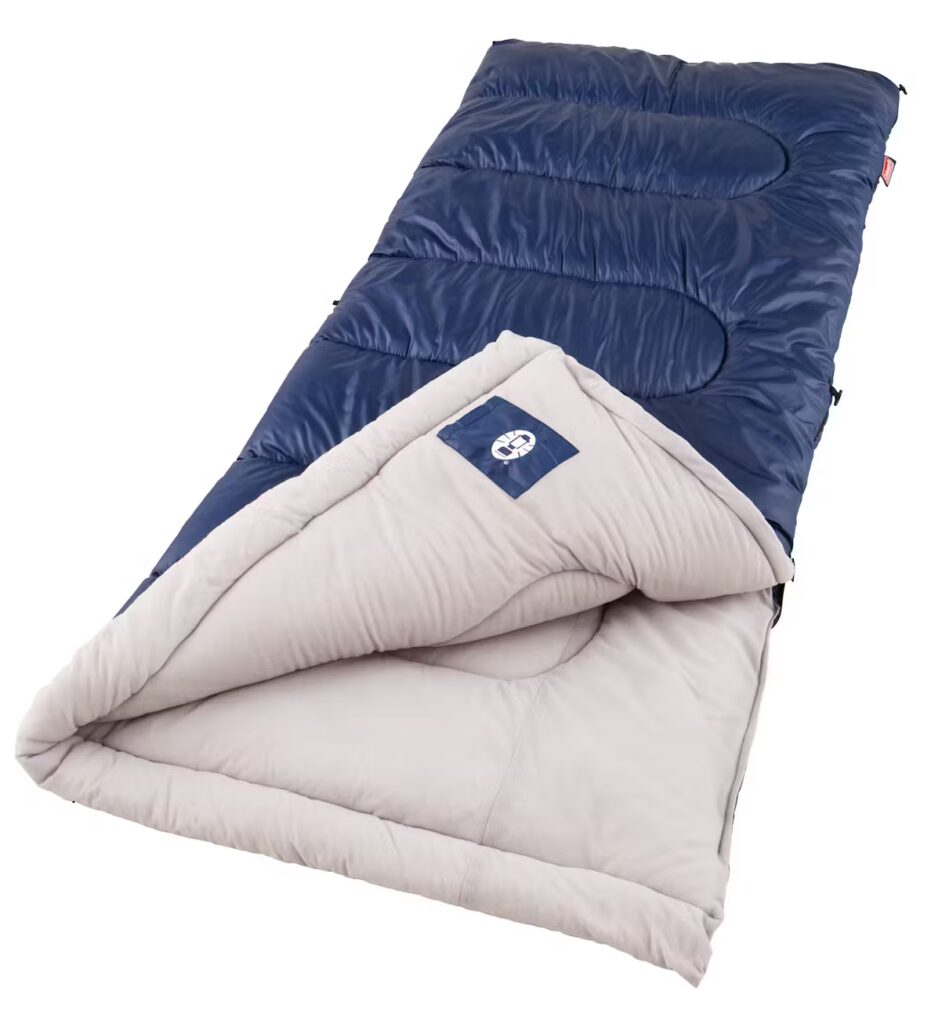
For beginners, budget-friendly and reliable options like the Coleman Brazos are a great starting point. If you’re looking for more features and comfort, the REI Siesta Hooded 20 offers a cozy, bed-like feel.
Finally, consider the insulation type: down is lightweight and compressible but loses warmth when wet, while synthetic insulation is more affordable and retains warmth even when damp.
| Type | Shape | Best Suited For | Pros | Cons |
|---|---|---|---|---|
| Rectangular | Rectangular | Car Camping, Summer | Lots of room, can be used as a blanket or zipped together | Less efficient at retaining heat, bulkier and heavier for packing |
| Mummy | Tapered | Backpacking, Cold Weather | Lightweight, excellent heat retention | Can feel restrictive |
| Semi-Rectangular | Modified Mummy | Car Camping, Backpacking | Good balance of roominess and warmth | Slightly heavier than mummy bags |
Sleeping Pads
While your car might offer a relatively flat surface, a sleeping pad is crucial for both insulation from the cold ground and added comfort. There are three main types of sleeping pads: air pads, self-inflating pads, and closed-cell foam pads.
Air pads are lightweight and pack down small, making them popular for backpacking, but they can sometimes feel less durable. Self-inflating pads offer a good balance of comfort and insulation, making them a great choice as one of your car camping essentials. They have open-cell foam inside that expands when the valve is opened, drawing in air automatically.
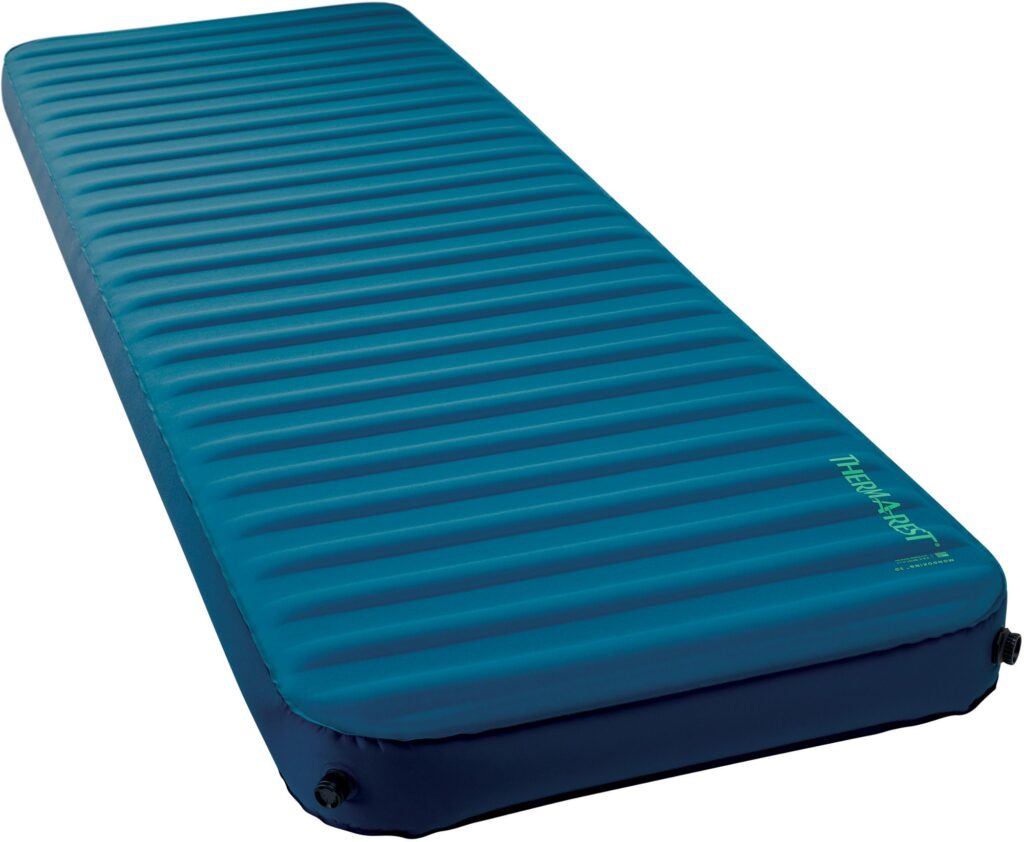
For maximum comfort, consider thicker self-inflating options like the Therm-a-Rest MondoKing 3D or the REI Camp Dreamer XL. Closed-cell foam pads are the most budget-friendly and durable option, often used by backpackers for their lightweight and puncture resistance.
The R-value of a sleeping pad indicates its level of insulation; a higher R-value means more warmth. For car camping in moderate temperatures, a pad with an R-value between 2 and 4 is generally sufficient.
Pillows and Privacy
Don’t underestimate the importance of a good pillow for a comfortable night’s sleep. Packable camp pillows are designed to be lightweight and compressible, saving valuable space in your car. However, if you have the room, bringing your regular pillows from home can also work wonders for comfort.
Finally, for privacy and to block out unwanted light, especially if you are sleeping in your car, consider bringing window coverings. These can be purchased or easily made using materials like Reflectix.
Fueling Your Adventures: Cooking Like a Camp Chef
One of the joys of car camping is the ability to prepare delicious meals in the great outdoors. With a little planning, you can enjoy everything from a simple cup of coffee to a gourmet campfire feast.
Portable Stoves and Cookware
For trips lasting more than a day or two, investing in a portable camping stove is highly recommended. Two-burner propane stoves are one of the car camping essentials you can’t overlook. They offer a convenient and relatively affordable way to cook.

Brands like Coleman are known for their reliable and budget-friendly options. If you’re a solo traveler or primarily plan on making quick meals, a single-burner stove might suffice.
Remember to pack the necessary fuel for your stove, whether it’s propane or butane, as well as a lighter or matches to ignite it. When it comes to cookware, start with the basics: a pot for boiling water or making soup, a pan for frying, and plates, bowls, and utensils for eating.
Mess kits can be a convenient space-saving option, especially for individual campers. For those who enjoy cooking over an open flame, cast iron cookware is incredibly versatile and durable for car camping.
Food Storage and Meal Prep
Keeping your food fresh and organized is essential during a car camping trip. A high-quality cooler is one of the car camping essentials for storing perishable items like meat, dairy, and produce.
Brands like Yeti and Stanley are known for their excellent insulation, though there are many budget-friendly options available as well. Use reusable containers and bags to store dry goods like pasta, rice, and snacks.
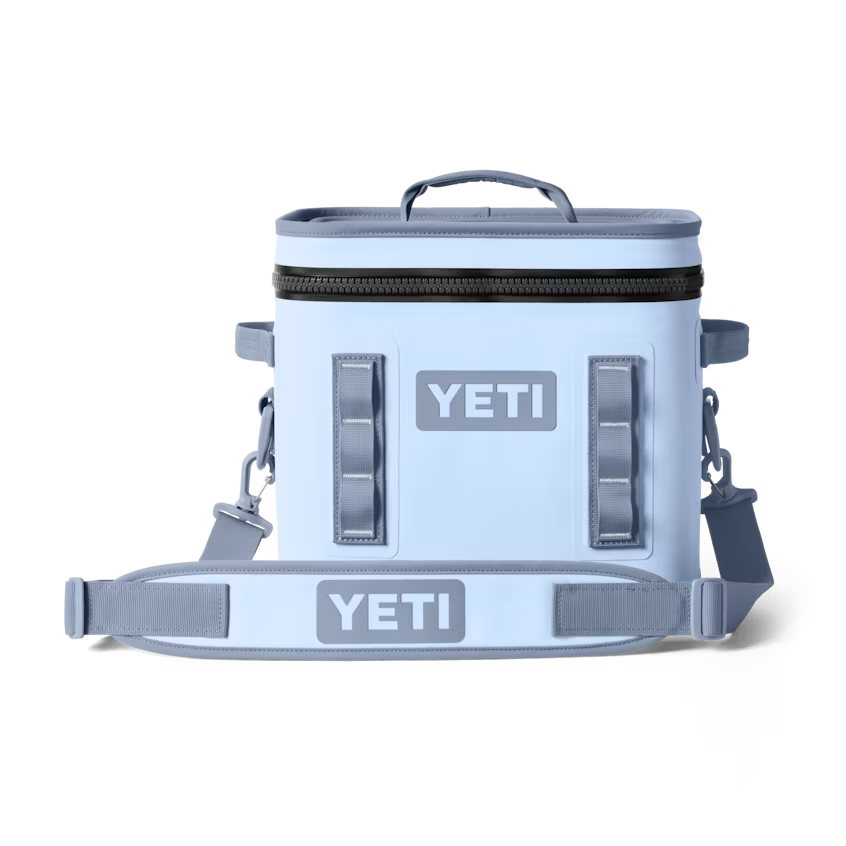
To simplify cooking at the campsite, consider doing some meal prepping before your trip. This could involve chopping vegetables, marinating meat, or even preparing entire meals that can be easily reheated.
Safety Net: Essential First-Aid and Emergency Items
Being prepared for unexpected situations is a crucial aspect of responsible car camping. A well-stocked first-aid kit is one of the paramount car camping essentials and should include bandages, antiseptic wipes, pain relievers, insect repellent, and sunscreen. Don’t forget to pack any personal medications you might need.
A multi-tool or knife can be incredibly handy for various tasks around the campsite. Always have a reliable flashlight or headlamp with extra batteries for navigating in the dark.
Since you’re car camping, it’s also wise to carry car-related safety items like jumper cables in case your battery dies. Ensure your vehicle has a spare tire in good condition and that you know how to change it. In areas with limited or no cell service, having offline maps downloaded on your phone or a traditional paper map can be a lifesaver for navigation.
Depending on your camping location, particularly if you’re in bear country, consider carrying bear spray and knowing how to use it, or a bear can for food storage.
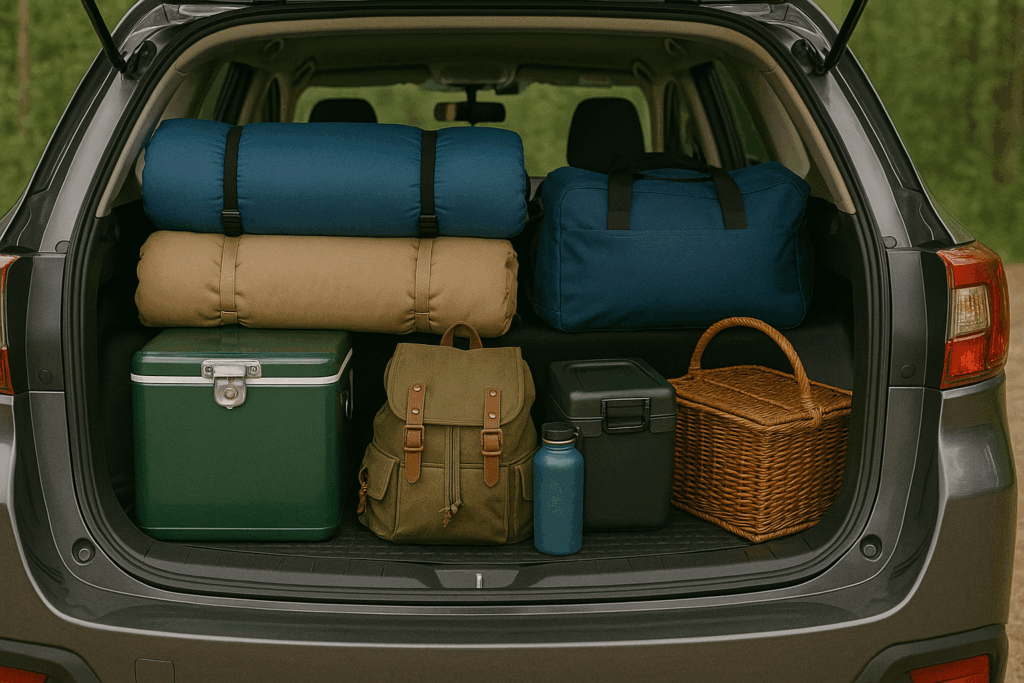
Pack It In, Pack It Out: Smart Organization for Maximum Fun
Efficient packing and organization can significantly enhance your car camping experience, making it easier to find what you need and maximizing the limited space in your vehicle. Using plastic bins and storage containers is a great way to keep your gear organized and prevent it from rolling around in your car.
Try separating your items into categories, such as cooking gear, sleeping gear, and clothing. When loading your car, place heavier items at the bottom and closer to the center for better weight distribution.
Utilize vertical space by stacking bins and consider using car organizers that hang from the back of seats. Designate a specific trash bag or container for all your waste and make sure to secure it properly.Finally, look for items that can serve multiple purposes to save space; for example, a bandana can be used as a headband, washcloth, or even a makeshift bandage.
Finding Your Slice of Paradise: Discovering Great Car Camping Spots
One of the most exciting parts of planning a car camping trip is choosing your destination. There are various types of car camping locations to consider, each offering a unique experience.
Established campgrounds in state and national parks are a popular choice, often providing amenities like picnic tables, fire rings, and restrooms. Commercial campgrounds, such as KOA, offer a wider range of amenities, sometimes including showers, laundry facilities, and even swimming pools.
For a more secluded and adventurous experience, consider dispersed camping in national forests, which allows you to camp outside of developed campgrounds. Finding the perfect spot often involves a bit of research. Online resources and apps like Hipcamp and The Dyrt are excellent tools for discovering campgrounds and dispersed camping areas.
You can also check the official websites of state and national parks and forests for information on campgrounds, reservations, and regulations. It’s crucial to understand and adhere to any regulations, including whether permits or reservations are required.
Many popular campgrounds, especially those in national parks, require reservations, particularly during peak season, so it’s wise to book your site well in advance.
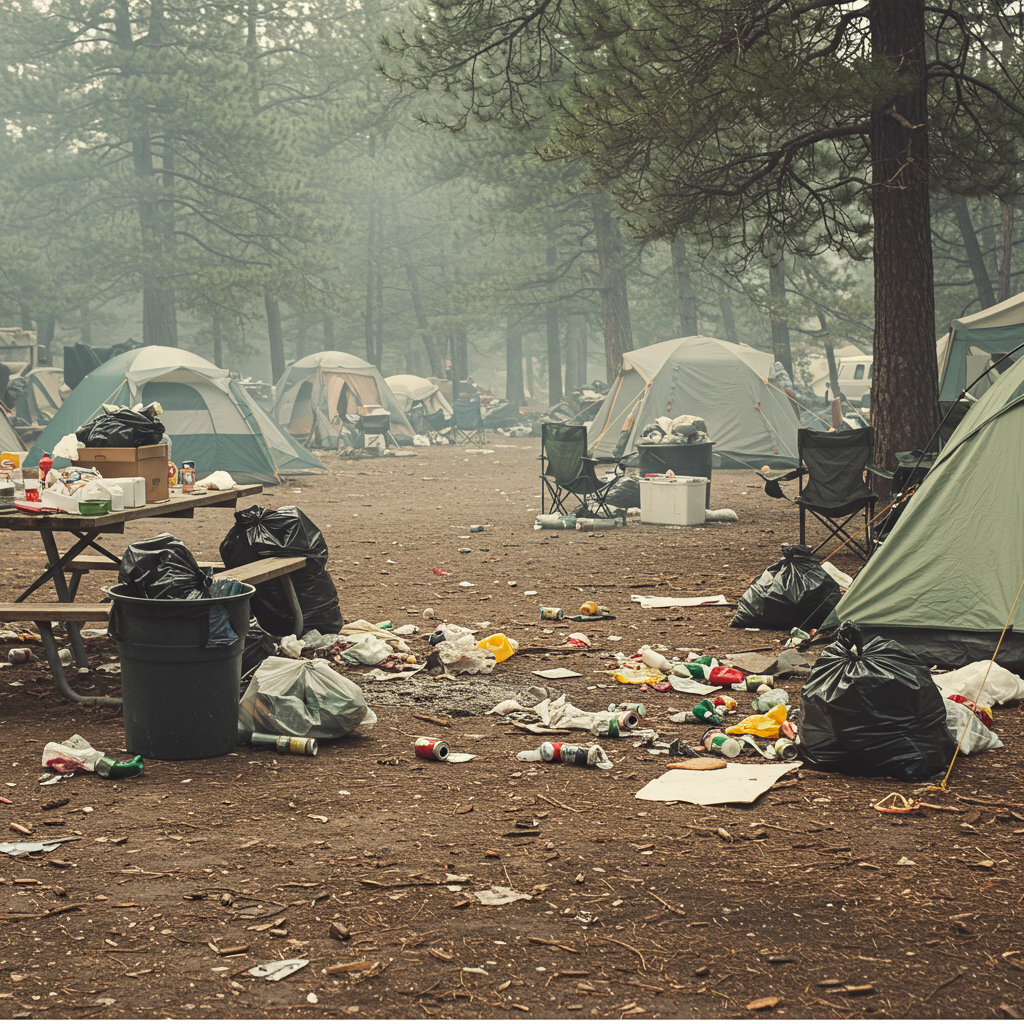
Leave No Trace: Respecting Our Wild Spaces
As you embark on your car camping adventures, it’s essential to remember the importance of Leave No Trace principles. These guidelines help minimize our impact on the natural environment and ensure that these beautiful places can be enjoyed by future generations.
One of the most fundamental principles is to pack out all trash. This includes everything you bring in, from food wrappers to broken gear. Dispose of waste properly, including human waste. In areas without restrooms, this means digging a cat hole at least 6-8 inches deep and 200 feet away from water sources, trails, and campsites, and packing out your toilet paper. Leave what you find; avoid taking souvenirs like rocks, plants, or artifacts.
Minimize campfire impacts by using existing fire rings whenever possible, keeping fires small, and only burning local firewood to prevent the spread of invasive species. Always be aware of and adhere to any fire restrictions in place.Respect wildlife by observing animals from a distance and never feeding them.
Store your food properly to prevent attracting animals to your campsite. Finally, be considerate of other visitors by keeping noise levels down, especially during quiet hours, and respecting their space.
The Ultimate Beginner’s Checklist: Don’t Leave Home Without These!
To ensure you have a fantastic first car camping trip, here’s a comprehensive checklist of essential items:
| Category | Item | Notes |
|---|---|---|
| Sleeping | Sleeping Bag | Consider temperature rating |
| Sleeping Pad | Provides insulation and comfort | |
| Pillow | Camp pillow or regular pillow | |
| Window Coverings | For privacy and light control | |
| Cooking | Portable Stove | With appropriate fuel |
| Cookware (Pot, Pan) | ||
| Utensils (Spoon, Fork, Knife) | ||
| Plates and Bowls | ||
| Cooler | For perishable food | |
| Food Storage Containers/Bags | For dry goods | |
| Water Bottles | ||
| Biodegradable Soap | For dishwashing | |
| Safety & First Aid | First-Aid Kit | Comprehensive and up-to-date |
| Headlamp or Flashlight | With extra batteries | |
| Multi-tool or Knife | ||
| Sunscreen | ||
| Insect Repellent | ||
| Jumper Cables | ||
| Offline Maps or Paper Map | ||
| Other Essentials | Camp Chairs | For comfortable seating |
| Trash Bags | For proper waste disposal | |
| Toiletries | Toothbrush, toothpaste, etc. | |
| Appropriate Clothing (layers for varying weather) | ||
| Tent (if not sleeping in car) | With stakes and footprint | |
| Fire Starter (matches, lighter) | ||
| Water Jug or Storage | For carrying extra water | |
| Toilet Paper and Sanitation Trowel (if needed) | For dispersed camping; follow Leave No Trace principles for disposal |
Hit the Road!
Car camping offers an incredible opportunity to disconnect from the hustle and bustle of everyday life and reconnect with the natural world. It’s a chance to explore stunning landscapes, breathe fresh air, and create lasting memories, all with the convenience of your car as your home base.
With the right preparation and a spirit of adventure, your first car camping trip is sure to be the start of many more unforgettable journeys. So, pack your bags, choose your destination, and get ready to experience the beauty and freedom of car camping!
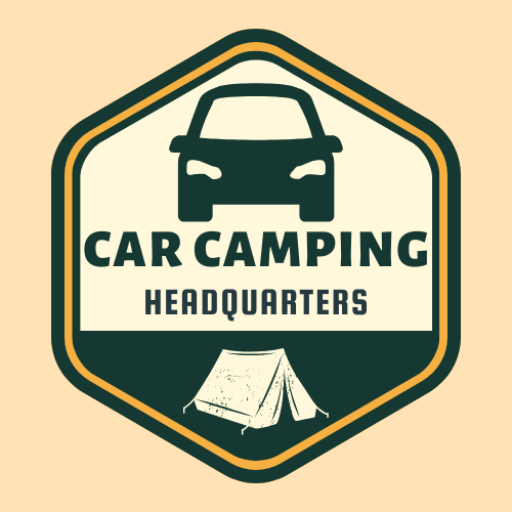

Leave a Reply